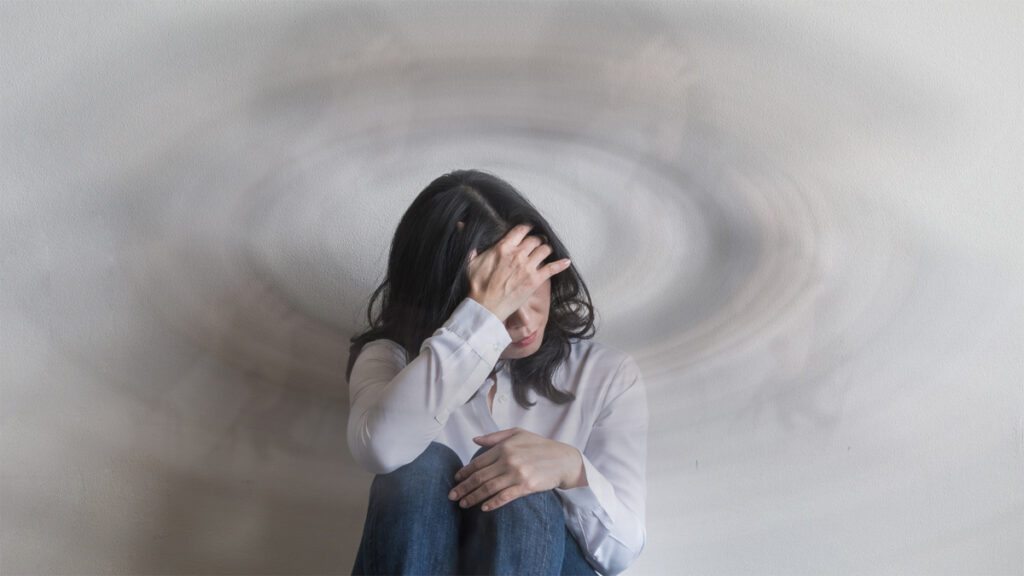Vertigo, or dizziness, is one of the most common reasons adults will see their primary care provider. It can be experienced in many different forms, from feeling off-balance or light headed, to actually feeling like you – or the world around you – is spinning. It can last a few seconds to hours or even days. Vertigo tends to affect women more than men but no matter who you are, it can be very disturbing and disruptive to daily life. One of the most concerning problems associated with dizziness is the increased risk of falling.
Causes of Vertigo
Vertigo is not an actual disease in and of itself, but rather a symptom. Its cause can stem from many sources, including cardiovascular or neurological disorders, or from medication side effects. Frequently, it is the inner ear that is the culprit. Some of the most common inner ear disorders are:
Benign Paroxysmal Positional Vertigo
Also known as BPPV, this disorder is characterized by brief bouts of dizziness that feel like the world is spinning, and most often occurs when you lay down, roll to one side, bend over, or occasionally when you look up. It occurs when otolith crystals get “unruly” and migrate into areas of the inner ear they are not supposed to go. The good news is that it is highly treatable!
Meniere’s Disease
Meniere’s Disease, which is also known as endolymphatic hydrops, will most often occur along with other ear symptoms including tinnitus, reduced hearing, and fullness or pressure in the affected ear. It happens when there is too much fluid in the inner ear. Acute symptoms can last 20 minutes to 24 hours with lingering effects that can persist for days. It can be improved with a low sodium diet, and your provider may prescribe a diuretic as well.
Vestibular Neuritis or Labyrinthitis
More commonly known as an “inner ear infection,” this condition is caused when there is inflammation in the inner ear. If it is affecting only the vestibular portion (which is the part of the inner ear that controls balance) it is known as “vestibular neuronitis.” If it is affecting the vestibular portion and the cochlear portion (the part of the inner ear that senses sound), it is known as labyrinthitis and will have hearing loss or tinnitus associated with it. Acute symptoms may be treated with antibiotics, but even when the inflammation is gone, it can leave the system weak and still in need of rehabilitation.
Less Common Causes of Vertigo
There can be other causes to vertigo, including heart arrhythmias, stress, migraines, intoxication, acoustic neuroma, or stroke. Other inner ear disorders such as a dehiscence (weakening) in the canal wall is also possible, but much less common than other causes. Overall, it is important not to ignore vertigo and to seek professional help and assessment.
Symptoms of Vertigo
Vertigo itself is a “symptom,” and not a disease in and of itself. It has also been described as feeling light headed, off balance, or like the world is spinning. It can be accompanied by other ear symptoms, such as aural fullness or feeling like your ear is “plugged,” decreased hearing or sound that seems “muffled,” as well as tinnitus that is often described as an “ocean” sound or a low rumble, like a train.
Treatment of Vertigo
Vertigo has many treatment options, but your first step to effective treatment is getting the correct diagnosis! Some forms of dizziness like Meniere’s Disease are best treated medically with diuretics and a change in diet. Other forms of vertigo will be responsive to treatment known as vestibular rehabilitation.
Vestibular rehabilitation can take many forms, depending on the root cause of the vertigo. It may be conducted by an audiologist, occupational therapist, or a physical therapist. No matter which professional is carrying out this treatment, it is important that they have received the specialized training needed. Many practices have experience with “dizzy patients” and can provide valuable consultations to help you find your best next steps toward feeling better.


